creamfresh rated Soul Music: 5 stars
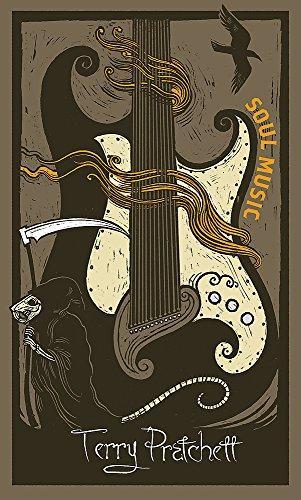
Soul Music by Terry Pratchett
Soul Music is a fantasy novel by British writer Terry Pratchett, the sixteenth book in the Discworld series, first published …
Nice to meet you! I'm creamfresh and I like science fiction, especially cyberpunk, but I also love the Discworld series. I'm always ready to broaden my horizon with non-fiction, especially when I don't agree with the politics of a given book. Some classics might also slip through. I am trying to get into the habit of writing reviews for the books I've read and I will amend some for the books I already marked as read. My native Language is German, but I always prefer reading the original version, so most of my books will be in English. I also read Manga, but I will only add the first volume of a series if I finish it, because i can't be bothered otherwise.
Mastodon: @creamfresh@corteximplant.com
This link opens in a pop-up window

Soul Music is a fantasy novel by British writer Terry Pratchett, the sixteenth book in the Discworld series, first published …
I expect that by the time I'm finished with this, I will have picked up the lute and gotten myself a patron, so that I may play in many a pubs and halls, to entertain everyone with beautiful renditions of anglo saxon poems of the eighth century.
I expect that by the time I'm finished with this, I will have picked up the lute and gotten myself a patron, so that I may play in many a pubs and halls, to entertain everyone with beautiful renditions of anglo saxon poems of the eighth century.
Lovely read, recommended for those that liked Neuromancer and those that tried to like it. It works standalone and might be worth a try if, like me, you had trouble getting through the first part.
Three stories, that seem unrelated at first but interweave beautifully towards the end, each contributing to the satisfying ending. Each story expands on a different part of the retro futuristic vision Gibson established in Neuromancer. We explore different locations in America (mainly the sprawl of the east coast, between Boston and New York), Paris, Brussels and Earth's orbit, through the eyes of a newbie hacker, a mercenary and an art curator.
In a way the world feels more grounded than in Neuromancer, while the themes are even more esoteric. Gibson foregoes technical feasibility in favour of something that could be described as cyber-magic. Sure, you could potentially try to explain how jockeys establish …
Lovely read, recommended for those that liked Neuromancer and those that tried to like it. It works standalone and might be worth a try if, like me, you had trouble getting through the first part.
Three stories, that seem unrelated at first but interweave beautifully towards the end, each contributing to the satisfying ending. Each story expands on a different part of the retro futuristic vision Gibson established in Neuromancer. We explore different locations in America (mainly the sprawl of the east coast, between Boston and New York), Paris, Brussels and Earth's orbit, through the eyes of a newbie hacker, a mercenary and an art curator.
In a way the world feels more grounded than in Neuromancer, while the themes are even more esoteric. Gibson foregoes technical feasibility in favour of something that could be described as cyber-magic. Sure, you could potentially try to explain how jockeys establish some kind of, potentially lethal, neural link with the cyberspace, but it works just fine within the story. Really, this is not for you if you prefer long technical info-dumps.
This is book is definitely one of my SF favorites.
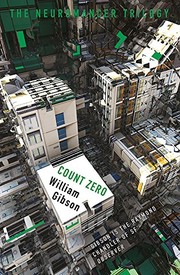
Count Zero is a science fiction novel by American-Canadian writer William Gibson, originally published in 1986. It is the second …
Man, when I started Neuromancer, I really Did Not Like It. But at some point in the second half, it just clicked. Now I'm halfway through Count Zero and I want so so much more of this story. Have to read other things I borrowed first, though.
Man, when I started Neuromancer, I really Did Not Like It. But at some point in the second half, it just clicked. Now I'm halfway through Count Zero and I want so so much more of this story. Have to read other things I borrowed first, though.
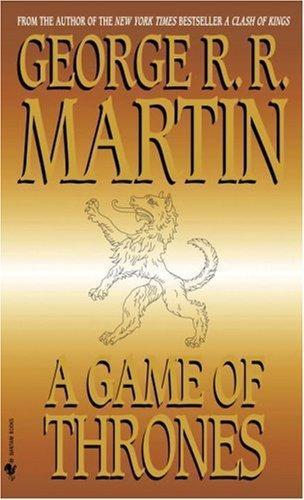
A Game of Thrones is the first novel in A Song of Ice and Fire, a series of fantasy novels …
I am not a historian, thus I cannot speak to the validity of specific details he provides, but Jared Diamond builds his thesis on why western societies dominate the globe today, on such solid groundwork, that I cannot imagine the broad strokes of his theory being refuted in the future. The book gives an overview about the evolutionary biology of crops and livestock, prehistory, history, geography and the influences of each field on the others. A large focus is put on the areas of Southeast-Asia/Oceania and South America. As a layman with general knowledge of the topics (I watch too much science YouTube) I found everything comprehensible, though many theses are repeated so many times, that often I got confused and could not tell wether I already read a section or not. In summary, if you are like me and watch a lot of science YouTube, this book will give …
I am not a historian, thus I cannot speak to the validity of specific details he provides, but Jared Diamond builds his thesis on why western societies dominate the globe today, on such solid groundwork, that I cannot imagine the broad strokes of his theory being refuted in the future. The book gives an overview about the evolutionary biology of crops and livestock, prehistory, history, geography and the influences of each field on the others. A large focus is put on the areas of Southeast-Asia/Oceania and South America. As a layman with general knowledge of the topics (I watch too much science YouTube) I found everything comprehensible, though many theses are repeated so many times, that often I got confused and could not tell wether I already read a section or not. In summary, if you are like me and watch a lot of science YouTube, this book will give you a bit of a deeper insight into the developement of human society without focusing too much on a single discipline.
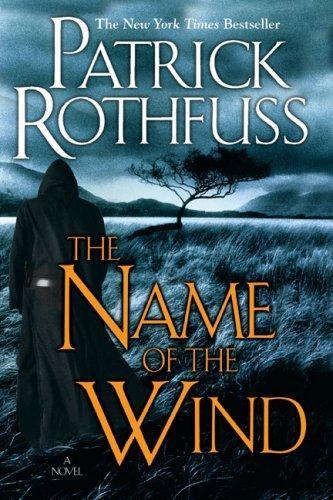
"The tale of Kvothe, from his childhood in a troupe of traveling players, to years spent as a near-feral orphan …
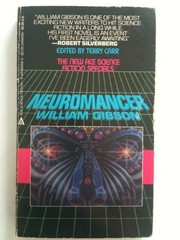
The first of William Gibson's 'Sprawl' trilogy, Neuromancer is the classic cyberpunk novel.
More information on the [novel's official …
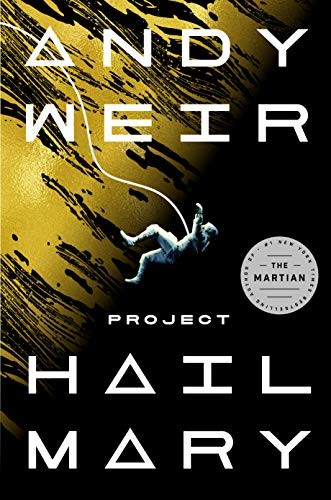
Ryland Grace is the sole survivor on a desperate, last-chance mission--and if he fails, humanity and the earth itself will …